












X5-highlights

Motor

Max Speed

Battery

Max Range

Suspension

Max Load
X5 30Ah Updated
48V 30Ah 130 km Dual Suspension All-Terrain E-bike
Frequently Bought Together

X5/X7 Specifications
| Specification | Details |
|---|---|
| Motor | 48V 750W | Peak 48V 1200W |
| Torque | 70 N.M |
| Max Speed | 45 km/h |
| Battery | 48V 30AH |
| Pedal Assist Range | 130 KM |
| Pure Electric Range | 110 KM |
| Charger | 54.6V 3A |
| Front Suspension | Front Hydraulic Fork |
| Rear Suspension | Rear Spring Suspension |
| Brake | Dual Disc Brakes |
| Display | LCD Color Display |
| Bike Weight | 40kg |
| Material | Aluminium Alloy Folding Frame |
| Items | Quantities |
|---|---|
| E-bike | *1 |
| Manual | *1 |
| Toolkit | *1 |
| Battery | *1 |
| Charger | *1 |
| Front Light | *1 |
| Display | *1 |
| Front & Rear Fender | *1 |
| Front & Rear Reflectors | *1 |
| Horn | *1 |
| Cable Binder | *1 |
| Rear Seats | *1 |
| Left & Right Pedals | *1 |
Video & Manual
X5-highlights

Motor

Max Speed

Battery

Max Range

Suspension

Max Load

X5 30Ah Updated
If you have any questions, you are always welcome to contact us. We'll get back to you as soon as possible, within 24 hours on weekdays.
-
Installment Payment
We support multiple installment payment options, including Klarna, PayPal, Visa, Mastercard, American Express, and Discover. Click to learn more.
With Klarna, pay only €53.74 per month. For more information about installment plans, please contact us at support@teswaybike.com.
-
2-Year Warranty
We offer a 2-year warranty for peace of mind. Ride with confidence knowing your e-bike is protected against manufacturing defects and quality issues.Please click if anything goes wrong.
-
Shipping Protection
Protects packages against loss, theft or damage during transit. Learn More
-
Shipping Information
After you place your order, TESWAY warehouse will arrange to dispatch ebikes and accessories the next day via TRUCKING/GEL for EU countries. The typical shipping time is 3-7 business days. If you do not receive your package within this time frame, please contact us at support@teswaybike.com.
Ride Easier, Go Greener: Your City, Reimagined
One Bike, Every Adventure: From Cobblestones to Countryside

Empowering Your Ride
Peak Power 1200W
Max Speed 45km/h
Torque 70N.m
Unleash the power of the X5 e-bike, designed for seamless riding and unmatched precision. Equipped with a 1200W peak power generating 70 N.m of torque, it ensures smooth acceleration and effortless hill climbing, even on challenging terrain.
Ride farther, faster, and with complete confidence.

Mile-Hungry Adventures Freedom
48V 30Ah
Max Range 130Km
Distance is no longer a limit to your adventures. With the X5 e-bike’s advanced 48V 30Ah battery, enjoy up to 130 KM in pedal-assist mode—40% more range than standard models. Whether you're exploring, commuting, or hauling light cargo, the X5 gives you the freedom to go further.
Charge Fast. Ride Longer. Live Greener.

Enhanced Comfort with Dual Suspension
Front Suspension Fork
Rear Hydraulic Spring Suspension
The front fork suspension absorbs shocks from bumps and potholes, reducing strain on your wrists and shoulders for a smoother, more comfortable ride. Meanwhile, the rear hydraulic spring suspension minimizes bouncing and enhances stability, even when carrying heavy loads or riding on rough terrain. Together, they provide superior shock absorption, keeping you in control and reducing fatigue—whether you're commuting, exploring trails, or transporting gear.
Your All-in-One Cargo Solution
Design Details with a Refined Attitude

Front Basket & Rear Seat with Backrest
Allows you to carry groceries, bags, or even a passenger with ease and added comfort.Makes everyday errands or family rides more convenient, practical, and enjoyable.

High-Brightness LCD Display & USB Charging
Displays real-time riding data clearly even under sunlight, while keeping your devices powered.
Enhances your riding experience with smart functionality and reliable device support on the go.
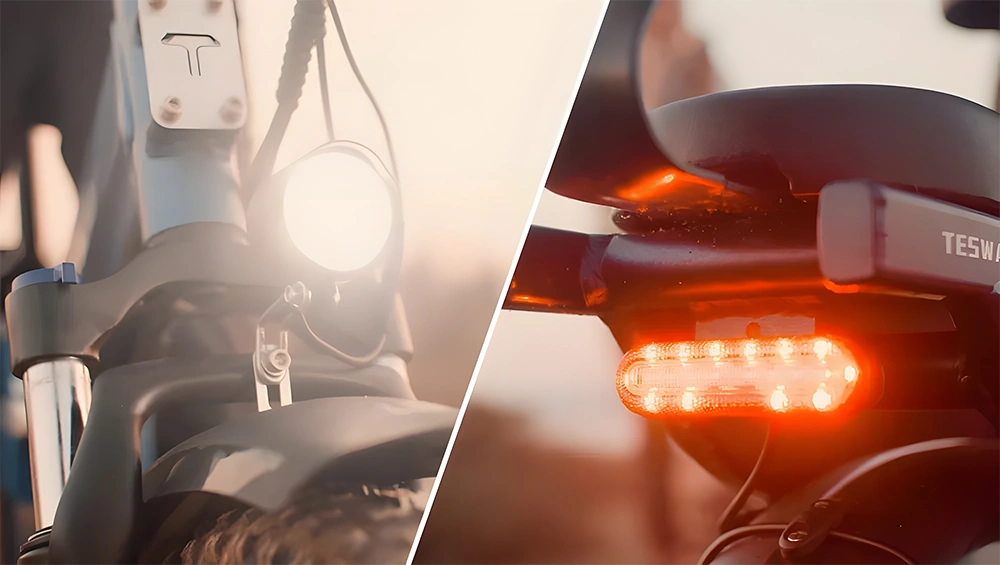
Headlight and Tail Light
Improves your visibility in low-light conditions and alerts others to your presence.
Keeps you safe during early morning, evening, or night rides by increasing overall road awareness.
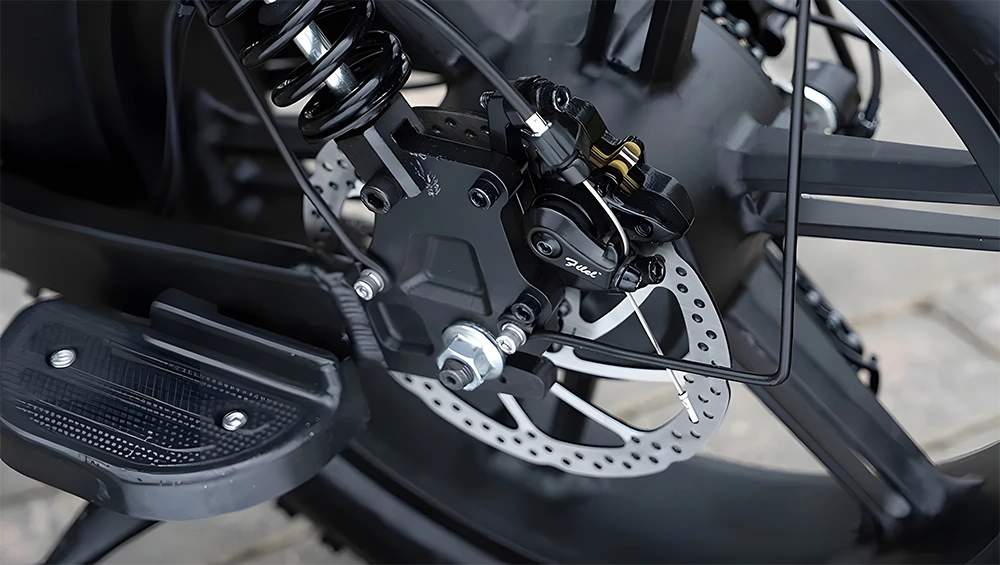
Front & Rear Disc Mechanical Brake
Provides strong, consistent braking power in all weather and terrain conditions.
Gives you confidence and control for a safer, smoother ride—no matter where you go.

SHIMANO 7-Speed
Offers precise and reliable gear changes, allowing you to tackle hills, city streets, and varied terrain with ease.
Specifications
Electronics
Motor
-Rated Power 48V 750W | Peak Power 48V 1200W
Torque
-70N.m
Battery
-48V 30AH
Range
-110 KM-130 KM
Display
-LCD Full Color
PAS
-5 Pedal Assist
Light
-Front & Rear Light
Range & Speed
Pedal Assist Range
-110KM
Pure Electric Range
-130KM
Default Speed
-25km/h
Max Speed
-45km/h
Drivetrain
Chainrings
-48T Double Chain Cover Sprocket
Crankset
-Aluminum Alloy, 160mm
Cassette
-7-speed
Rear Derailleur
-SHIMANO 7-speed
Shift Lever
-SHIMANO 7-speed
Suspension & Brake
Front Suspension
-Front Hydraulic Fork
Rear Suspension
-Rear Spring Suspension
Brake
-Front and Rear Mechanical Disc Brakes
Rotors
-Front and Rear ¢160mm*2.0T Disc Brakes
Brake Levers
-Aluminum Alloy
Wheel
Rims
-Magnesium Alloy Integrated wheel
Tire
-20'' * 4.0'' Fat Tires
Weight & Size
EBike Weight
-87 LBS (40kg)
Battery Weight
-30 LBS(11 kg)
Max. Payload Capacity
-350 LBS(160kg)
Folding Packing Size
-106*50*90CM
Included in the Box

E-bike

User Manual
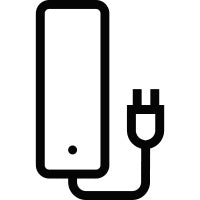
Charger

Keys
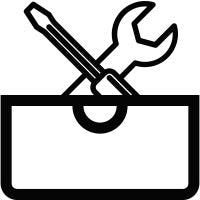
Toolkit Box
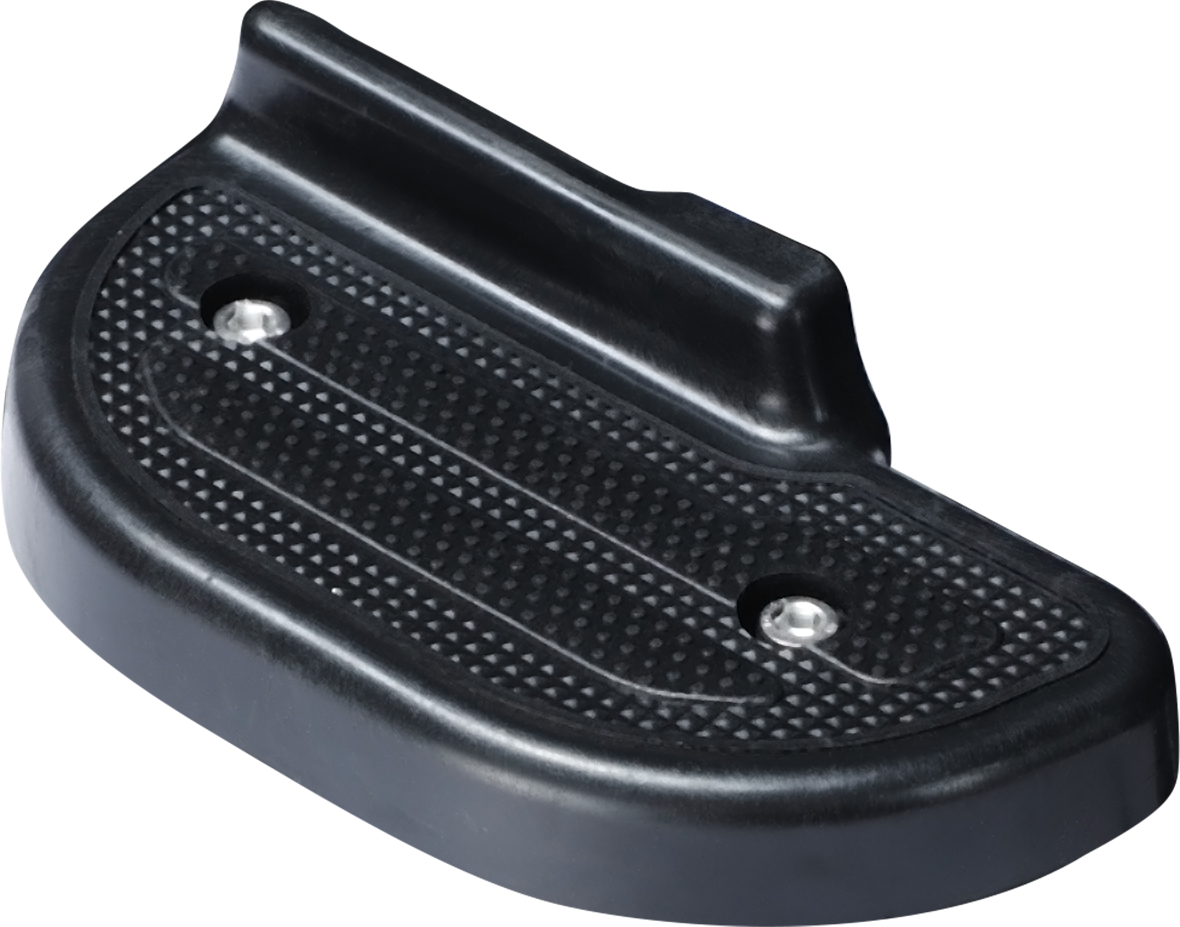
Rear Footrests
FAQs
Please read our FAQs page to find out more.
Do My height and weight fit the X5/x7?
The recommended height for the X5/x7 riders is 5'3" ~ 6'5", and the maximum load is 160kg.
What factors determine the riding experience of an electric bike?
The riding experience is influenced by various factors, such as the bike's configuration, motor drive mode, type of speed sensor, and control system. Different drive modes result in varying riding experiences.
How far can the e-bike travel on a single charge?
The range depends on factors like the battery capacity, motor power, rider weight, terrain, and riding mode. X5:130km(Range Pedal Assist Mode) per charge. High-capacity batteries may extend the range further.
What is the maximum speed of the e-bike?
X5:Max Speed 45 km/h (about 28 mph), depending on the motor power.
How long does it take to fully charge the battery?
Charging time varies by battery size and charger type. X5 takes 8 hours for a standard battery.
Is the e-bike waterproof?
E-bikes are designed to handle light rain and splashes, but they are not fully waterproof. Avoid submerging the bike or exposing it to heavy rain for extended periods to prevent damage.
X7:Water Resistant-IP6.
What kind of maintenance does an e-bike require?
Regular maintenance includes:
Checking tire pressure and brakes.
Cleaning the chain and lubricating moving parts.
Ensuring the battery is charged and stored properly.
Periodic inspections of the motor and electrical connections.



















